Breaking away from the polished image, and showing the multiplicity of Muslim women.
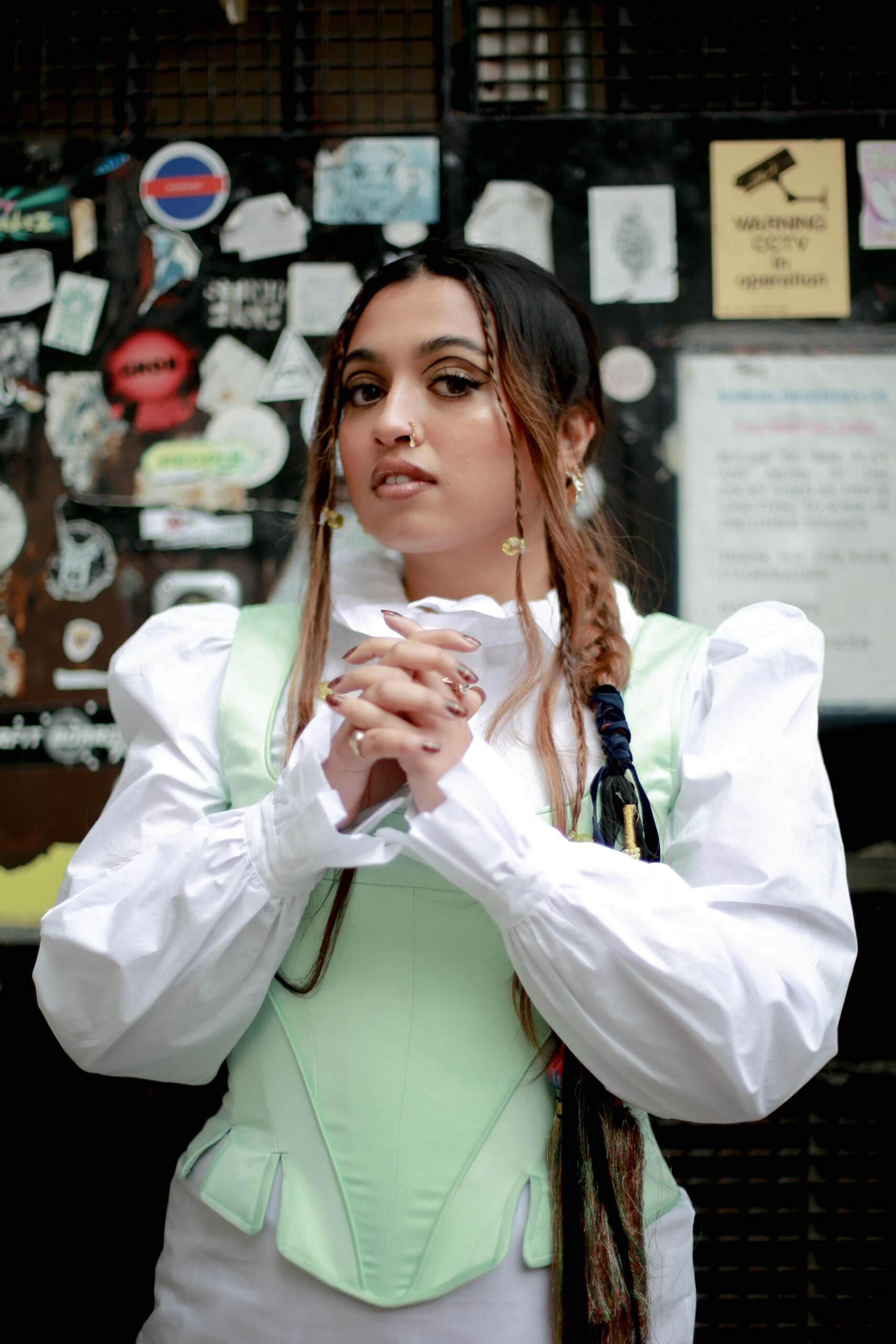
We all want to be heard, seen and understood. Community is one of the driving forces of our life on Earth, and finding people to build this with are those who we reveal our true selves to. Never backing down from this message is LAMISA KHAN, one of the founding members of the MUSLIM SISTERHOOD collective. Creating a platform where real Muslim women and non-binary people represent themselves, it’s hard not to be blown away by what an absolute powerhouse she is. From DAILY PAPER to Vogue Arabia, I am forever inspired by the message of unity, community and, naturally, sisterhood.
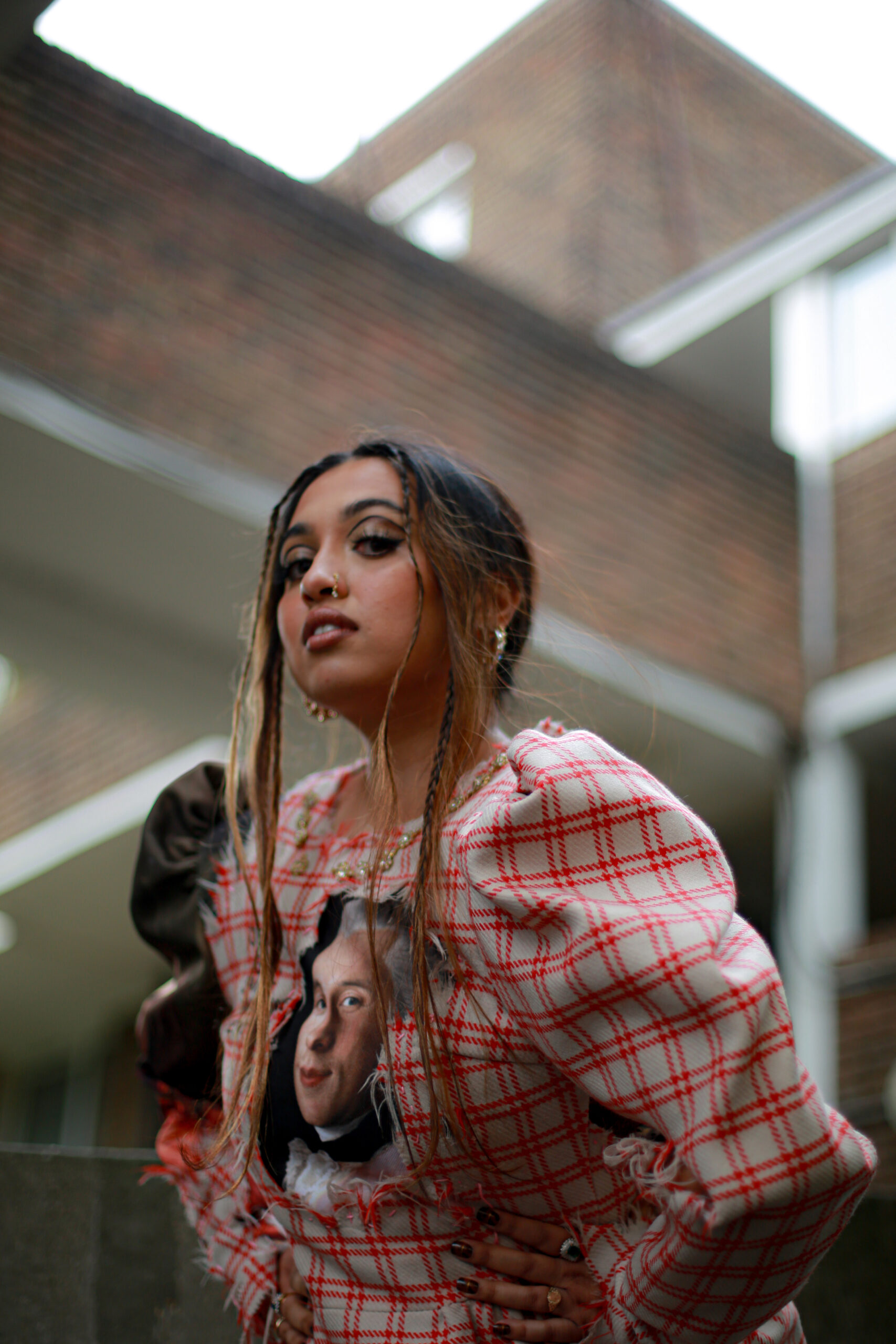
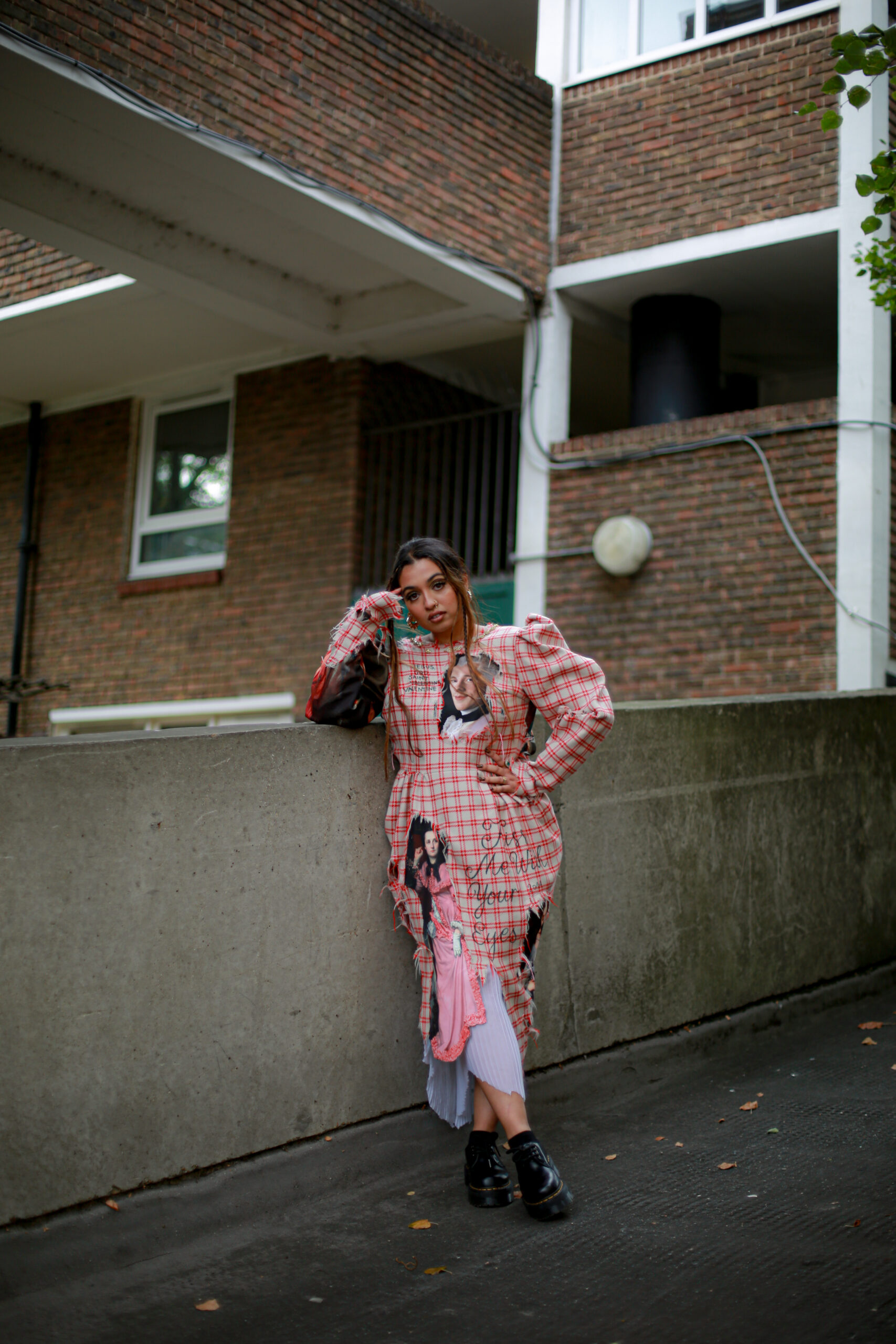
Could you tell me about the collective you co-founded: Muslim Sisterhood? Muslim Sisterhood is an artistic collective that works within photography, publishing, fashion and events founded by myself and my two cofounders, SARA GULAMALI and ZEINAB SALEH. The main idea was to break away from the polished images of Muslim women we see in mainstream media and represent ‘normal’ Muslim girls who aren’t bloggers, fashionistas, or Bake-off winners. We started off shooting mainly wearing streetwear in inner-city London —places in the city that had large Muslim communities— that played a huge role in our own upbringings. Places like Brixton, Brick Lane and Shepherd’s Bush that are sadly falling victim to gentrification. It’s crucial to maintain a sense of identity and community as a form of resistance to these urban changes and the stereotyping we experience.
How do you think a community like Muslim Sisterhood can impact young Muslim women’s lives and outlook on their identity?
When I was growing up I really struggled with my Muslim identity. It was something that I felt embarrassed about because it meant I didn’t fit in with everyone around me. I rarely saw people who looked like me or had similar upbringings to me in popular culture and on the rare occasion I did, those people were far more palatable to the Western gaze than I was. I was brought up in a very white area in a Bangladeshi household and even now I find myself negotiating parts of my identity in different spaces. When we’re told we can only be one or the other it’s hard to find a balance and feel confident about who you are. We always say that we started this project for the younger versions of ourselves. I am sure I wouldn’t have had such a turbulent experience growing up if I had seen more positive Muslim representation.
I certainly wish such a community was available when I was growing up.
The more vocal and proud we are about our identities, the more confidence we will have in navigating difficult times and spaces. Showing the multiplicity of Muslim women helps get rid of any misconception of what a ‘normal’ Muslim girl looks like because that image simply does not exist.
There are 1.5 billion Muslims worldwide, all living in completely different circumstances… there’s no such thing as ‘normal’. Would you say intersectionality is a key element of Muslim Sisterhood?
Intersectionality is definitely central to everything we do as a collective. Muslim women and the ummah are frequently depicted as a monolith, particularly by reductive Western media. Having grown up in culturally diverse communities, it’s important that we acknowledge and appreciate the different identities, sects and experiences that make up our ummah. Intersectionality is second nature to us. Unfortunately, there are divisions in the ummah when it comes to anti-Blackness and sectarian difference, but in a world that seeks to divide, it’s integral for us to create spaces of unity and tackle those conversations in a productive way so that we can support and uplift each other. Islam is a religion of peace and unity and we really try to live by that through all our work.
How have you guys evolved since your conception?
Muslim Sisterhood and have always had a very DIY attitude to our work. It’s been a learning process and we usually just take things as they come organically and ensure that we’re proud of it. Other than that, we place faith in Allah (swt) to guide us through it. Now our work involves hosting events and workshops for our community as well as working in fashion. The work you guys have been doing has been beautiful— all the shoots I’ve seen are breathtaking! I’ve grown up believing that working in the creative industry and fashion particularly was out of my reach as a Brown Muslim woman. But my faith always reminds me that everything is written by Allah (swt) and if I wasn’t meant to be in a certain place at a certain time then I wouldn’t be there.
How do you think Muslim Sisterhood helps to create a new reality in the editorial scene?
Our teams from our conception have been made up of Muslim women and non-binary folk entirely, from hairstylists and makeup artists, to photographers, videographers and designers. There is an unspoken understanding of values: we don’t have to explain why a model needs clothing that fits her modesty requirements, or that we need halal food options and a space to pray. Having to explain your identity and why you prescribe to certain norms and values is emotional labour we didn’t sign up for and can be frustrating when production teams don’t understand that it’s the way that we live our lives. It means that we can create authentic editorials that do not compromise our values as Muslims.
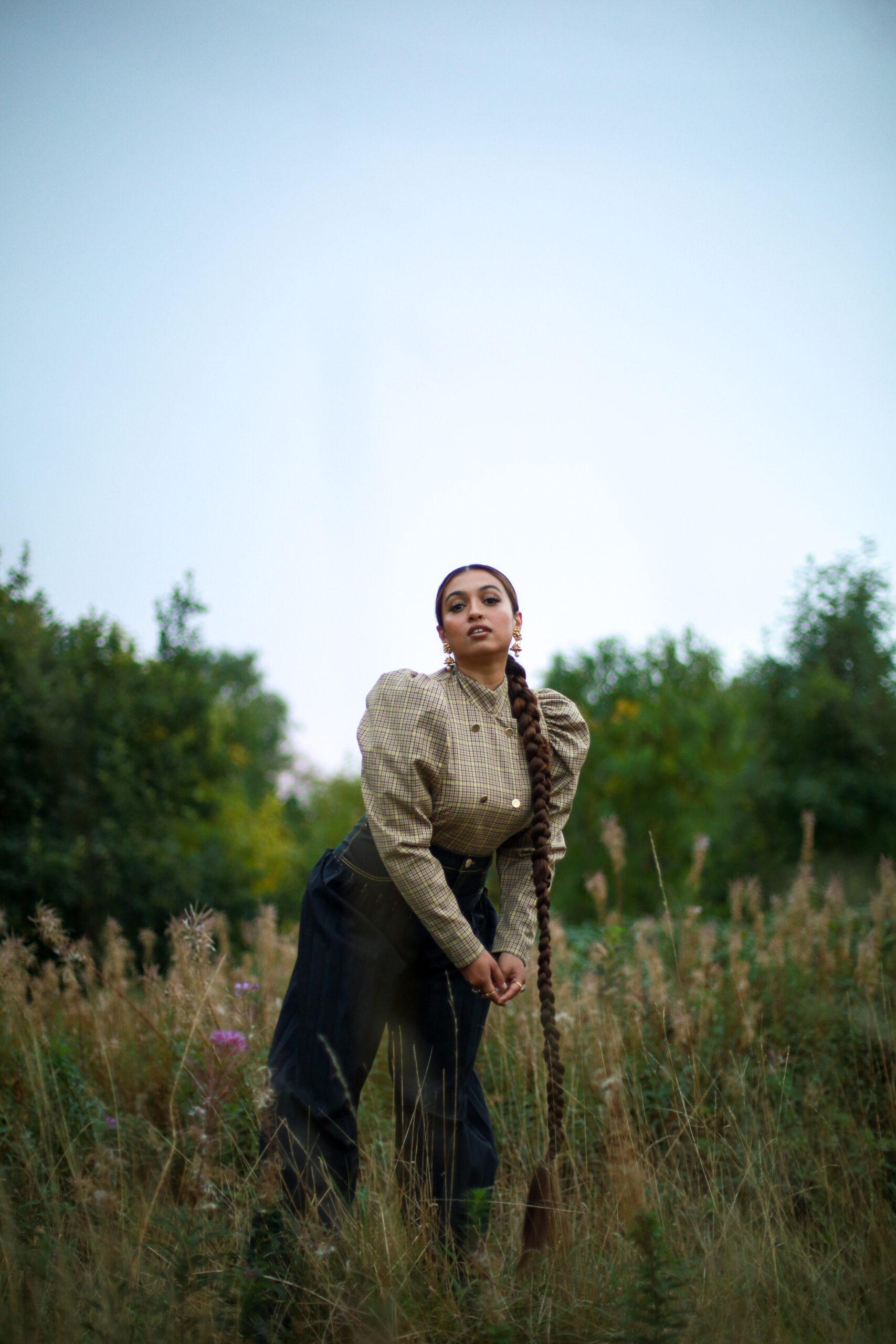
This, therefore, leads to a more fulfilling experience.
All of our fashion needs to be modest and our priority is that our models look and feel good in whatever they’re wearing.
I swear, the divine feminine energy is immaculate!
When we were shooting for our zine we wanted to create images that were dreamy and utopian, I’m obsessed with the work of NADINE IJEWERE and MISHA MEGHNA and how extravagant and delicate all their images are.
Education and exposure are some of the most vital catalysts for change. Have your studies impacted the topics and issues you want to address within the Muslim Sisterhood?
Regardless of visibility, Muslim women are politicised before we even enter a space. I’m finishing off my masters this year in Gender Studies with a focus on the Middle East and it was definitely a decision encouraged by my co-founders and the work we’ve done through Muslim Sisterhood. Politics is unavoidable and filters into absolutely every aspect of life, so I think it’s really important to be conscious of what you’re creating so that when you put it out into the world it has meaning, however big or small. My studies helped me reframe my understanding of the world around me, especially in the current political climate and made me more aware of struggles beyond my own.
I completely resonate with this! The theoretical canon is predominantly male and Western, it’s such a breath of fresh air to read texts that acknowledge me as a valid subject.
One of my favourite readings from my masters was ACHILLE MBEMBE’s theory of ‘Necropolitics’. It’s based on FOUCAULT’s ‘Biopower’: the politics of life how states and institutions decide who lives but instead focuses on the politics of death. Unsurprisingly it tends to be Black and Brown people who are disproportionately impacted by barriers of inequality that make their lives more difficult to live as they are deemed to be less valuable. He frames his theory using the neo-colonial occupation of Palestine, Apartheid and the Transatlantic Slave Trade but it’s applicable to most socio-economic situations that we see unfold around us in present society. For example, a lot of the causes for the Grenfell tragedy can be understood when framed by Necropolitics.
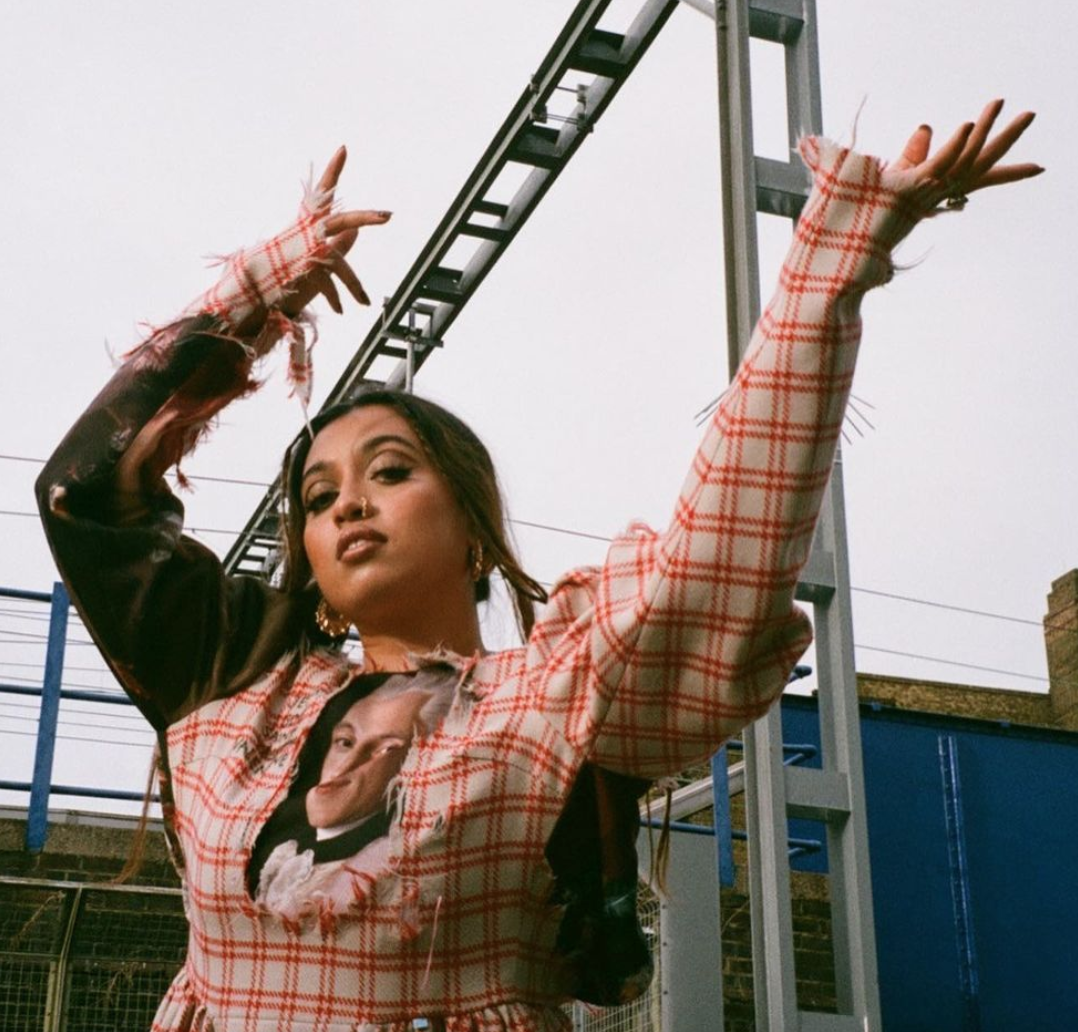
Applying theory to our own situations definitely helps us come up with new solutions to social and political issues. Considering the theme of the issue, what does RISE mean to you in terms of the work you girls do as a collective?
Community is at the core of our work and is hugely important to Muslims in general. Zakat (charity) is one of the 5 pillars of Islam which is a form of love and care that is built within the foundation of our religion. We want to change the idea of having a seat at the table. I read a tweet by @TaoLeighGoffe regarding Black feminist praxis recently that said the goal should not be ‘having a seat at the table next to a white man’ but instead to reach ‘another galaxy where there is no concept of a table and there are other forms of communing not based on exclusion’ and that really resonated with me.
Love it— where do I get my ticket?
I wouldn’t be where I am today if I didn’t have the support system around me SUBHANALLAH. The isolation we all experienced from feeling like there weren’t people like us in creative spaces is why we built Muslim Sisterhood. We need to stop thinking of ourselves as individuals because you can’t create change on your own. Celebrate each other’s achievements and don’t see others as competition. In this world, joy is radical.
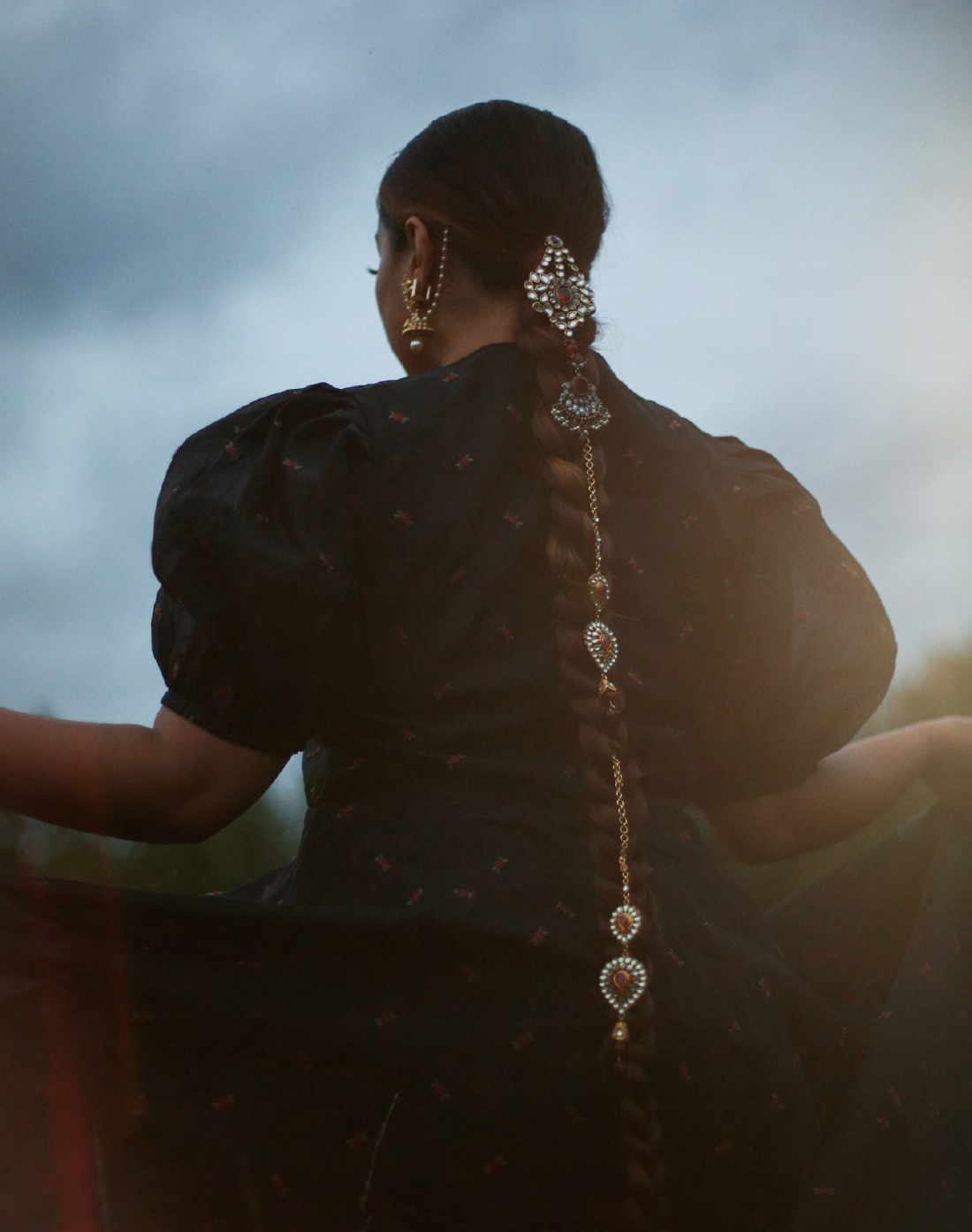
Photography by Bardha Krasniqi
Styling by Alizé Demange
Hair and Make-up by Shireen Kadhim
Styling assistance by Sophia Abbassy
Words by Alia Ayoubi